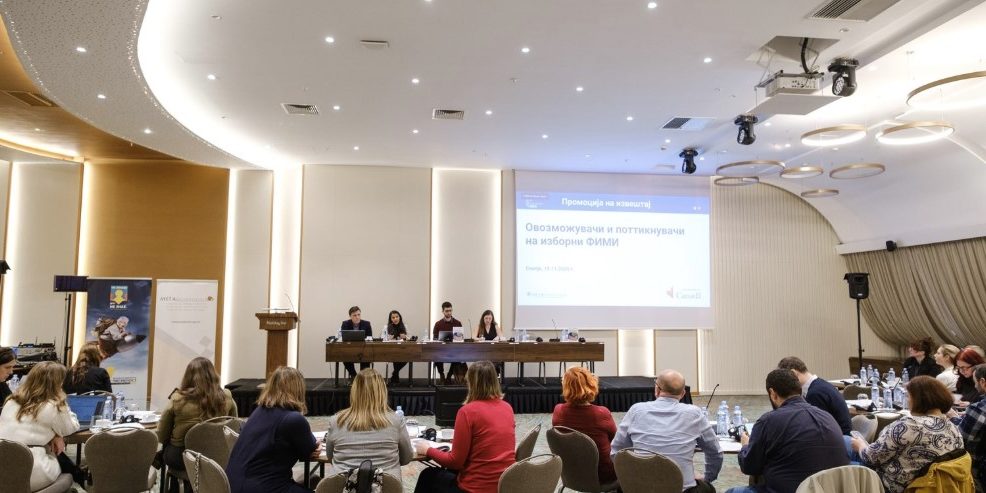Skopje, 20 November 2025 – Organized by the Metamorphosis Foundation, in cooperation with International IDEA, the report on “Enablers and Incentives of FIMI during Elections in North Macedonia” was presented today in Skopje as part of the 2025 Media Literacy Days. The document was developed using an international methodology applied in the preparation of similar reports produced in partnership with organizations in Moldova, as well as in Senegal and Côte d’Ivoire.
The main goal of this initiative is to identify the factors that enable the spread of disinformation and manipulations through foreign influence during electoral processes, as well as to recognize the structural vulnerabilities that make the country susceptible to organized harmful interference.
Disinformation Undermines Trust in Democracy
Kushbu Agarwal of International IDEA explained that this report was part of an international project aimed at countering foreign interference in elections and strengthening societal resilience.
“In more than 20 offices around the world, we work on electoral integrity, especially in the context of digitalization and cybersecurity. We analyse what makes North Macedonia a target for interference and which strategies are used by actors seeking to manipulate. Disinformation campaigns create distrust in the democratic processes,” Agarwal said.
Goran Rizaov of the Metamorphosis Foundation, co-author of the report together with Despina Kovachevska and Matej Trojachanec, emphasized that the report’s focus was not primarily on the foreign harmful influence itself, but rather on the domestic factors that create space for the spread of disinformation and for FIMI to penetrate.
“The report is not so much about foreign interference as it is about ‘domestic non-interference’ — identifying the weaknesses within society that enable and encourage the spread of harmful influence and disinformation from various power centres. These are conditions, practices and system vulnerabilities,” Rizaov stressed.
As groups of enablers, the report highlights social media, the legal and regulatory environment, the media and journalism sector, political institutions and practices, as well as the broader socio-political and cultural context. As incentives, it identifies the information manipulation industry, the attention economy, and access to foreign resources and sources.






